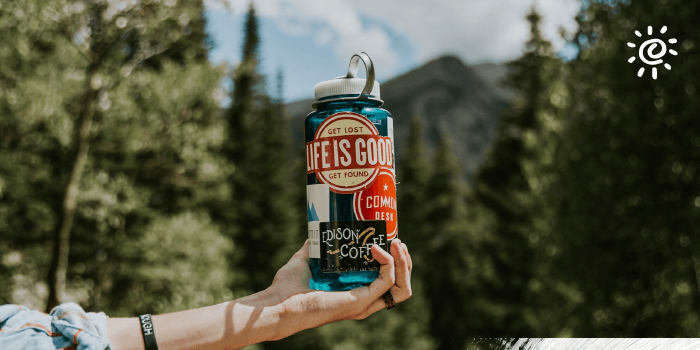Written By: Bill Reifsnyder — Superfeet Wellness Panel Member. Bill Reifsnyder is the founder of Camp Runabout, the only adult summer camp for runners on the planet, and is committed to helping runners of all ages and abilities achieve their goals and get the most out of their training plans. Bill is a former professional runner and holds the thrid fastest time ever run by an American for 10 miles (46:32).
Rest and recovery should be an important part of your week, no matter if you're training for a race or simply logging miles to keep yourself active. In fact, taking time for running recovery is just as essential to your fitness as the miles you run. Read on for six tips to make the most out of your rest days:
Recovery Runs
When graphed out, your training log should look like a two-humped camel. In other words, there should be consistent peaks and valleys, day after day after day. Too many of us adhere to the “no pain, no gain” philosophy of training. As I have aged, and become wiser, I have shifted my thinking to “train smarter, not harder.”

When you run, you develop microscopic tears in your muscle tissue. Your body will then produce white blood cells to repair those micro tears making you a better version of yourself from a day ago…if you let it! Following up a hard day of running with another hard day of running doesn’t make you tougher; it makes you injured or sick. So plan easy days into your schedule after each hard run (interval workout, long run, tempo run, fartlek workout, a hill workout, etc.), to allow your body to rebuild stronger, keep you injury free, and on the roads.
Hydrate

A hydrated muscle is a happy muscle. When we run our muscles get hot. To counteract this rise in body temperature we produce sweat. The more we sweat, the higher our dehydration becomes, and our performance declines accordingly. It is not only water that we lose when we run; we also disperse valuable sodium, minerals, and electrolytes. So what can we do to help our body stay hydrated and recover quickly after a workout?
- Drink 8 ounces of water, or an electrolyte drink, a half hour before your run.
- Drink during your runs. This is especially important on hot days, during longer and harder runs.
- Replenish your fluids immediately after your workout. An electrolyte drink is better than water at this time to replenish everything you’ve lost through sweat.
- It sounds obvious but drink regularly throughout the day. I often get busy at work and just forget to drink. I now sit a few water bottles on my desk in clear site as a reminder to finish them by days end.
Massage
We always see massage therapists at races giving free massages to runners once they cross the finish line. Are there any benefits to jumping on the table for some hands-on treatment? In short, the answer is yes. A massage after exercise will significantly reduce your recovery time. It will increase your blood flow providing nutrients and oxygen to your stressed muscles. Massage will also break up lactic acid that has accumulated in your muscles allowing you to eliminate some of the soreness you may experience from your run.

Ice, Ice Baby
So you just finished your marathon and your doing the zombie walk back to your hotel for a soothing dip in the hot tub. That is the best thing for your aching body, right? Wrong! Instead of going down to the third floor and jumping into 104-degree water, go down the hall to the ice machine and fill your tub with ice and water for a 15-minute ice bath. I know, it may not feel as good while you’re immersing yourself in frigid water, but it is the best thing for recovery after a hard race or workout. Hard exercise causes micro-tears in your muscle fibers. While these tears are good because your body will repair them making you even stronger, they will cause you pain and discomfort as you recover. Taking an ice bath after exercise will reduce inflammation, constrict your blood vessels and help flush out lactic acid. Accordingly, your recovery time will be shortened, and you will be back to doing what you love…running.
Stretch

A 15-minute stretching routing immediately after your workout (when your muscles are already warm), will increase your flexibility, improve your range of motion, reduce lactic acid, and help you recover faster. Even if you drove to the trailhead for your run, try to get in some stretching before you jump in your car for your ride home. A couple of years ago, I visited Meb Keflezighi in Mammoth Lakes, Calif.. We drove out to the foothills for Meb’s workout, and I noticed that he had towel on-hand. Immediately upon finishing his run, Meb grabbed his towel, spread it on the ground and plopped down for 20 minutes of active isolated stretching. So, if it works for one of America’s best distance runners ever, then it’s something you and I should consider as well.
Cross Train

Another great way to give your legs a break from the pounding on the pavement and help them recover faster is to cross train on your easy days. Any non-impact endurance workout will do the trick. The elliptical, the bike, swimming and running in the pool are all for alternatives. I also own an ElliptiGO (an elliptical bike for the roads), as do many elite runners, that I use specifically for this purpose. As long as you are getting your heart rate to the same range that you would when running and keep it there for the same amount of time, then you are getting comparable cardio benefits, without the abuse of hitting a hard surface.


